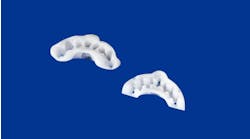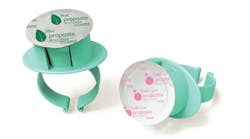by Dianne Glasscoe-Watterson, RDH, BS
Dear Dianne,
I've been in dental hygiene over twenty-five years, and during that time, I have worked for several dentists. Two of my former employers were outstanding clinicians who took great pride in the dentistry they provided. The majority were just average dentists. However, my current boss is practicing what I believe to be supervised neglect.
When I took the position six months ago, I had no idea what I was getting into. Many, if not most, patients have never had a periodontal charting – ever! I have seen many substandard crowns with excessive margins and decay. I have witnessed decay on bitewings that the doctor says to "watch." When I detect periodontal disease, the doctor tells me to just do a prophy. Recently, when I told the doctor I could not do a prophy because the patient had overt periodontal disease, she fired me. Then she called and begged me to come back. The day she fired me, she closed the office down and sent everyone home.
The doctor accepts capitation plans, which means she gets money from insurance companies whether she does any dentistry or not. While I'm not sure how capitation affects the dentistry, I'm seeing a "dark side" of dentistry that I never knew existed. Believe me, I would leave this practice in a heartbeat, but jobs are scarce in my area. I have bills to pay and a family to support.
I am very concerned about the patients, but I am also concerned about my license. I believe this doctor needs a mental health evaluation. I have considered reporting her to the state board, because I believe she is practicing below the current standard of care. What are the implications if I report her?
No Name Please
Dear No Name,
As you are aware, state boards are charged with ensuring that the standards of care of dentistry are not violated. State boards are in place to protect the public. But what are "standards of care"?
Simply put, standards of care are those standards that are taught in accredited schools of dentistry and dental hygiene and are practiced by members of the profession. In 1998, there was a landmark case that set forth what "standard of care" entails. To summarize, the court stated that a doctor must:
- Possess a reasonable degree of learning and skill that is ordinarily possessed by clinicians in the same locality.
- Use reasonable care and diligence in the exercise of skill.
- Keep up with the latest advances in the profession.
- Use the clinician's best judgment in exercising skill and applying knowledge.
- Exercise the skill and learning possessed by the average member of the profession in good standing, not necessarily of the best practitioner.
- Use approved methods in general use.
- Give proper instruction to the patient (Pollack, 2002).
In judging whether a professional has been negligent, the courts use a standard called the reasonable prudent person or professional. This means the court compares what a reasonably prudent person or professional would have done in a similar situation. Thus, maintaining a practice that meets or exceeds the standard of care is extremely important for dental hygienists. Failure to include a procedure or step in treatment because the clinician claims to be unaware of the current standard will not hold up in court.
You mentioned the absence of periodontal charting. This is a serious violation of the standard of care. It is generally accepted that the standard is every adult patient receives a six-point probing at a minimum of once per year. It is likely that periodontal disease has gone undetected in the practice.
Because of the nature of the work, hygienists are in a good position to evaluate the quality of the doctor's work up close. From your letter, it sounds like the doctor may not be practicing to the established standards of care regarding restorative dentistry if you are seeing numerous carious lesions that are not being addressed.
You also mentioned that the doctor is on several capitation plans. Capitation plans pay doctors a set amount of money per month to see covered patients, and "cap" doctors are supposed to provide whatever dentistry is needed by the patient. Doctors who sign on get the capitation payment whether they see one or one hundred capitation patients. In that regard, it seems like a disincentive to treat, in my opinion. An interesting article was published in the British Dental Journal in March 1990, titled "The capitation study. Does capitation encourage ‘supervised neglect'?" This was the conclusive statement in the study: "Dentists in capitation carried out fewer fillings, fewer extractions, took fewer radiographs and saw their patients less frequently than their fee-for-service colleagues."
There are several things you need to consider. First, you mentioned the doctor's abrasive treatment toward you. Here's my question: If the doctor had treated you well, would you still be considering reporting her to the state board? I'm not excusing the doctor's obvious lack of tact and respect, but everyone goes through rough places in their lives from time to time.
Second, if you report her, she could lose her license, which may or may not be in the best interest of patient care. The residual outcome would be you would lose your job. Your license would not be in jeopardy as long as your chart notes accurately reflect what you observed in the patient's mouth and your care was at or above the accepted standards of care.
Third, unless your state board allows "anonymous" reporting, you could be labeled as a "whistle-blower," which could affect your ability to work in your area. You could be the finest hygienist in the world, but if no one will hire you, you cannot use those skills that you have perfected over the years.
Can this situation have a happy ending? Only time will tell. You are in a position to help her if she will allow your assistance. Consider how you might be able to help this doctor bring her practice up to the established standards of care.
Otherwise, I see major trouble. My mom says, "If you give a dog enough rope, he'll eventually hang himself," which means if a dog is on a long enough leash, he runs around in various directions until he wraps the rope around a tree or other obstacles in his path and causes his own demise by choking. The application is that sooner or later, this doctor will be sued for substandard care IF she doesn't change her ways.
In the meantime, try to help her if you can during your search for a new practice home. You have a BIG challenge!
Best wishes,
Dianne
References
Holloway PJ, Lennon MA, Mellor AC, Coventry P, Worthington HV. (1990). The capitation study. Does capitation encourage ‘supervised neglect'? British Dental Journal, Volume 168, No. 3, 119-121.
Pollack B. (2002). Law and Risk Management in Dental Practice. Carol Stream, IL: Quintessence.
About the Author
Dianne Glasscoe-Watterson, RDH, BS, is a professional speaker, writer, and consultant to dental practices across the United States. She is CEO of Professional Dental Management, based in Frederick, Md. To contact Glasscoe-Watterson for speaking or consulting, call (301) 874-5240 or e-mail [email protected]. Visit her Web site at www.professionaldentalmgmt.com.





